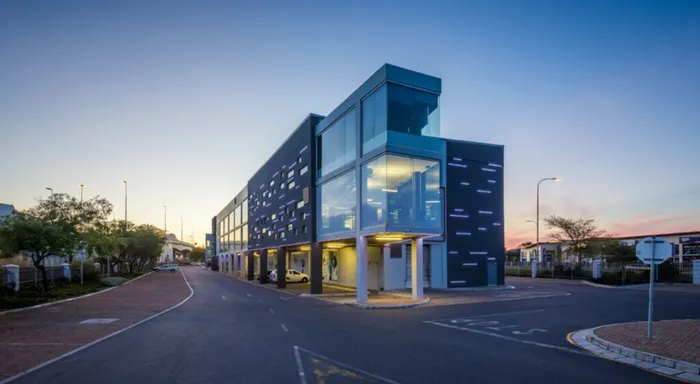
Spear REIT’s Northgate Park office building in Cape Town. The Western Cape focused group has seen strong demand and lower vacancies for its office portfolio in its 2025 financial year, driven by declining availability and high development costs in the Cape Metropolitan area.
Image: Supplied
In a remarkable year for Spear Reit, the Western Cape property investment group expanded its portfolio significantly while reporting a solid increase in distribution per share (DIPS).
With a rise of 3.06% to 81.27 cents for the 2025 financial year, expectations for the forthcoming years remain optimistic, as CEO Quintin Rossi anticipates further DIPS growth of between 4% and 6% for the 2026 financial year.
Describing the past year as transformative, Rossi, in an interview on Thursday. highlighted the acquisition of 13 commercial properties from the Emira Property Fund as a key milestone.
This expansion, coupled with a R130 million share issue for a fully let 30 000 square metre agriculture and wine logistics facility in Paarl announced this week, signifies a firm commitment to a growth strategy that is expected to bear fruit in the years ahead, he said.
“The R1.15 billion transaction positions Spear firmly on a growth trajectory,” said Rossi in an interview Thursday. The diversified portfolio encompasses industrial, medical, life science-focused retail, and commercial assets in the Cape Metropolitan area.
Despite the challenges posed by South Africa's macroeconomic landscape, including fluctuating inflation rates and intermittently disruptive loadshedding, Spear’s core portfolio thrived.
Distributable income soared by 25.5% to R252m, while revenue climbed 12.10% to R681.70m—a testament to Spear's tenacity in an uncertain environment.
“Our focus on operational imperatives yielded tangible results,” Rossi asserted, noting a steady increase in leasing momentum and a 97% occupancy rate at the end of the reporting period. “The Cape Metropole’s office space has seen tenant demand surpassing supply, a clear indicator of a robust market.”
With a rental collection rate steady at 98.59%, the board approved a final six-month payout ratio of 95%, ensuring sustained income distribution to shareholders amidst economic volatility.
“While we navigate challenges such as crime and high unemployment, we see promising signs of recovery within the South African-listed property sector,” Rossi explained, adding that the declining interest rate environment has contributed to the sector's recent successes.
The Western Cape, said Rossi, had seen its property metrics diverge from national trends, aided by extensive infrastructure investments—R120 bn over 10 years—which are fostering economic growth and job creation within the province.
This local focus has proven advantageous as Spear's industrial portfolio occupancy stands at 98.85%, driven by prime locations and diverse offerings that make it resilient in fluctuating markets.
“The industrial segment accounts for 63% of our total lettable area and continues to show sustainable cash flow as we observe an in-force escalation of 7.3%,” he said.
Spear's retail assets also delivered above-expectation results, with a strong occupancy rate of 96.05%. Rossi said they were pursuing new retail opportunities, ensuring that Spear remains well-positioned for the future, focusing on convenience and destination retail spaces that cater to a wide income spectrum.
Additionally, two medical retail properties added to the core portfolio were backed by long-term lease agreements with recognised entities like Intercare and Clicks Group.
Rossi was particularly optimistic about the commercial portfolio, which is poised for rental growth due to constrained supply in high-quality office spaces across the Cape Metropolitan area.
“The occupancy rate has improved to 92.99% from 84.37% in the last financial year, reflecting the strong demand,” he remarked. As Spear Reit continues to navigate the complexities of the property market, its focus on the Western Cape and a diverse portfolio positions it competitively for sustained growth and resilience.
Visit:www.businessreport.co.za